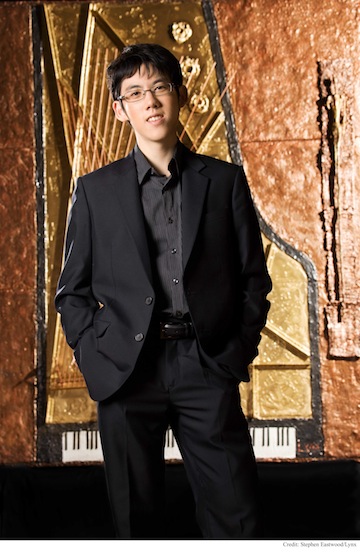
January 2011 Archives

In the mid 1930's, the famous Polish born violinist, Bronislaw Huberman, sensing the looming danger facing Jews in Europe, conceived the idea of recruiting musicians willing to immigrate to Palestine to found an orchestra. Some seventy five Jewish instrumentalists from major European Orchestras answered his call and the inaugural concert of this body of musicians, known as the Palestine Philharmonic Orchestra, was conducted by the great maestro Arturo Toscanini on 26 December, 1936. With the establishment of the State of Israel in 1948, the orchestra changed its name to the Israel Philharmonic Orchestra (IPO).
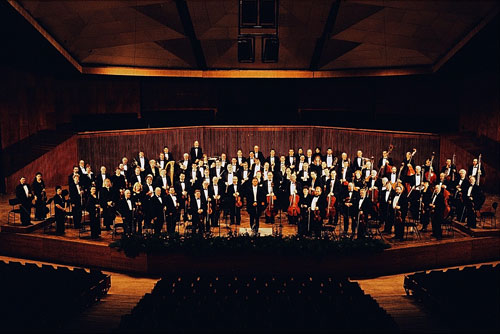 The Israel Philharmonic Orchestra with Zubin Mehta, their current music director at the Frederic R. Mann auditorium.
The Israel Philharmonic Orchestra with Zubin Mehta, their current music director at the Frederic R. Mann auditorium.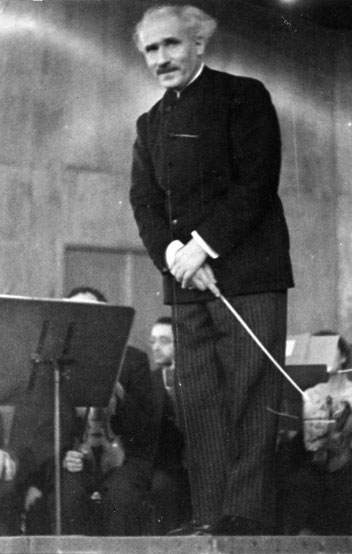 |
|
Arturo Toscanini, who conducted the inaugural concert of the Israel Philharmonic Orchestra in 1937. |
In 1957, the orchestra moved into its permanent home, a state of the art concert hall known as the Frederic R. Mann auditorium which seats 2700 music lovers. In 1969, Zubin Mehta was appointed Music Advisor to the IPO and in 1977 he became its Music Director and Music Director for Life in 1981.
Each season the orchestra gives 11 subscription concerts in Tel Aviv, 8 in Jerusalem and several in Haifa. To take account of all 26,000 subscribers, each concert in Tel Aviv has to be repeated from 3 to 4 times. Unlike most European orchestras where up to 80% of the budget comes from the state, this only amounts to about 15% of the IPO's budget; the remainder comes from ticket sales and contributions.
In addition to the subscription series, the orchestra also gives several special non-subscription concerts as well as concerts for Israel Defense Force soldiers at their outposts. The IPO also travels to outlying areas of the country to perform in Kibbutzim and border towns. Other recent innovations include an intermezzo series given on Friday mornings in Haifa and Jerusalem. This has served to solidify IPO bases in centers away from Tel Aviv. Following coffee and cake, each work to be played is introduced by a prominent musicologist. This series has proved to be immensely popular since most people do not work on Friday.
Other innovative series at the IPO include Musical Bites, a series offering a kaleidoscope of music from oratorios and cantatas to symphonies and piano concertos, from Indian music to classical opera. An added attraction is beer on the house. The Philharmonic in Jeans has become a magnet for the young and middle-aged. Every concert is presented by a well-known figure from the Israeli media and arts scene. In addition, there is a Chamber Music Series featuring celebrated soloists and musicians in an intimate atmosphere.
Mehta took the initiative in founding the Buchman-Mehta School of Music at Tel Aviv University where an academy of leading IPO players coach tomorrow's musicians. The "KeyNote" program is the education department of the IPO. Within the framework of this program, every year 20,000 participants whose age ranges from kindergarten to university are exposed to classical music.
As the preeminent cultural body in Israel, the orchestra has performed at the most momentous events in the country's history. It played the National Anthem, Hatikvah (Hope) at the official ceremony of the declaration of the State of Israel on May 14, 1948. One of the most memorable concerts was given in the sand dunes of the recently liberated city of Beersheba during the Israel War of Independence, a concert which was conducted by the young Leonard Bernstein. In July 1967, Bernstein conducted Mahler's Resurrection Symphony at the Amphitheatre of the Hebrew University at Mount Scopus following the conclusion of the Six Day War and the reopening of this university campus which had been out of bounds to Israelis for 19 years. During this time, there was a performance of Verdi's Requiem in Bethlehem.
At times of crises such as the 1973 Yom Kippur war, great friends of the orchestra including Mehta, Barenboim, Zuckerman and Stern cancelled all their international obligations and rushed to Israel as a sign of solidarity and play for the wounded soldiers. In the 1991 Gulf War, Mehta conducted the IPO with both the violinist Stern with the audience wearing gas masks. In the optimism following the Oslo accords, the IPO got onto the bandwagon and members trained Palestinian and Jewish children for a joint concert conducted by Mehta in Jerusalem.
In the early 1940's, the orchestra undertook its first overseas tour which was to Egypt, one of the country's closest neighbors. The first international tour to the US occurred in 1950 and soon after this, the orchestra began touring Europe. The IPO was first invited to perform in the main European summer festivals in Salzburg, Lucerne and Edinburgh in 1971 and today they annually tour the world's major cultural centers and its prestigious festivals. The IPO have also appeared in Mexico, Japan, India, Russia and China as well as several other countries. Throughout its history, the IPO has had several recording contracts with international labels including Decca, Sony, EMI, DGG and Teldec amongst others.
One of the most moving recent concerts given by the IPO consisted of a performance of Leonard Bernstein's Symphony no 3, the Kaddish, with a text "A dialogue with God" written and narrated by the Holocaust survivor, Dr Samuel Pisar. The word Kaddish refers to the prayer chanted for the dead and most fittingly this performance took place in an open outdoor square in Jerusalem's Yad Vashem Holocaust Museum. Full marks to the acoustical engineers who managed to put up a sophisticated
amplification system so that orchestra and soloists could be clearly heard without distortion. In this most moving performance, the orchestra was conducted by John Axelrod and the solo soprano was Danna Glazer.
The IPO frequently give concert performances of operas. In the last season this included Verdi's Il Trovatore and Rigoletto. Zubin Mehta, an experienced opera conductor, pulled out all the stops in Trovatore and gave a dramatic and coherent reading of Verdi's masterful score. Since the orchestra was onstage with the singers, Mehta held in the reins and did not drown out the singers. Prominent amongst the soloists was the impressive soprano, Julianna di Giacomo, as Leonora. In the fortissimo passages her soaring soprano could be easily heard. She was equally at home in her solo passages as well as in the ensembles. Tenor Salvatore Licitra as the troubadour Manrico, carried off his battle cry aria "Di quella pira" ("The horrid flames of that pyre") and its high C's with a flourish. Baritone Alberto Bagazalo as the Count di Luna had a shaky start but then settled in well.
In the last season, the IPO performed Brahms's major orchestral works. Pianist Rudolf Buchbinder opened the season under the baton of Mehta in Brahms' two formidable piano concerti played in one concert. The IPO rounded of this program with Brahms's first symphony. This was a spellbinding concert. The string playing was beyond reproach. Woodwinds were particularly impressive in the second movement and brass in the third.
In another concert, Murray Perahia put his personal indelible stamp on an authoritative rendering of Beethoven's fourth piano concerto. This was great Beethoven played by a real maestro. The second movement in particular was most arresting. The program also included an account of Richard Strauss's Ein Heldenleben (A Hero's Life). In this somewhat egotistic tone poem, Strauss promoted himself as the hero. Mehta is a great exponent of the music of Richard Strauss and gave an impeccable performance of this work. Until a few years ago, the music of Strauss was banned in Israel because of his Nazi associations. This has now been lifted but the informal ban on the music of the virulent anti-Semite, Richard Wagner, is still in place.
The program also included a world premiere by Israeli composer, Ella Milch-Sheriff, which was specially commissioned by the Israel Philharmonic Orchestra. Titled "Night's End Anthem," it is based on a poem by Roy Arad and Nathan Alterman and is scored for orchestra, 2 sopranos and children's choir. It also included a percussion section with rhythmic drum beating darbukas (classic Middle Eastern drums), played by a young group from the Shanti House Drummers Circle (The Shanti House is a home for homeless youth and several courses are given there, one being on percussion instruments). Milch-Sheriff's rich rhythmic tonal score was similar in style to that of Stravinsky and the music was characterized by sudden changes in rhythm, mood and atmosphere. It should be noted that the IPO have premiered many works of Israeli composers and the orchestra had done much to foster the absorption of new immigrants, many of whom have joined the IPO ranks.
The Honorary Guest Conductor of the IPO, Kurt Masur, is internationally recognized as one of the great exponents of the music of Felix Mendelssohn. This is not surprising since Mazur was for many years the music director of the Leipzig
Gewanthaus Orchestra, an orchestra that was directed 150 years previously by Mendelssohn himself. One of Mazur's showpieces is Mendelssohn's Midsummer Nights Dream and he managed to captivate the wonderful lines and light buoyancy of the work. Noteworthy were the shimmering strings, gentle brass and woodwinds. Mazur really conveyed the elegance of the score. Worthy contributors to the success of the performance were Israeli singers, mezzo Edna Proshnik and soprano Tamar Kleinberger, and the Israeli based Moran Choir.
Another frequent welcome visitor to Israel is the world renowned German conductor Helmuth Rilling and his Gachinger Kantorei Choir from Stuttgart. This vocally impeccable group with a small ensemble of the IPO gave a memorable account of the first part of Haydn's Creation as part of the Intermezzo series and an unforgettable performance of Handel's Messiah in the subscription series. Most impressive of the vocal soloists in the Handel was countertenor Daniel Taylor but the real star of these performances was the Kantorei Choir.
Mehta opened the 2010-2011 season with violinist Leonidas Kavakos in a masterful rendering of Prokofiev's second violin concerto. The program also included a delightful short composition entitled Azerbaijani Dance which was based on traditional Azerbaijani melodies by Israeli composer Avner Dorman, specially commissioned for the opening of the season. The incorporation of eastern percussion instruments into this tonic rhythmic piece added much to its dramatic effect. The concert concluded with Stravinsky's Petrouchka. For this, the orchestra was joined by the Batsheva Dance Company. Choreographer Sharon Eyal mustered all her resources and the dancers put on an impressive show despite the small stage which was crowded with 16 dancers. Petrouchka is heard so often as a stand alone orchestral piece, that one forgets that it was originally conceived as a ballet. Mehta excels in this kind of repertoire and the whole concert showed the IPO at its best.
Due to world class institutions like the IPO, the cultural life in Israel is flourishing. People need diversions to take their minds off the often difficult day to day living as well as to cope with the existential threats facing the country.
The history of opera in Israel began in 1923 with a performance of La Traviata by a company founded by the Russian conductor, Mordechai Golinkin. There was no appropriate venue and the company performed in cinemas. In 1945, the American soprano, Edis de Philippe, arrived in Israel and founded the Israel Opera. This company was firmly established when the state of Israel came into being in 1948 and performed night after night all over Israel. In the early 1960's, a young tenor spent three years in Israel improving his skills and mastering the repertoire. His name was Placido Domingo.
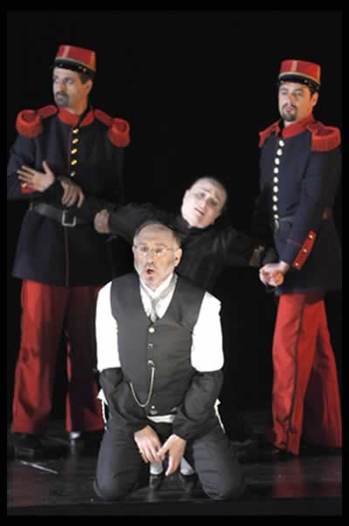 |
|
Israel Opera production of La Juive |
All operas are sung in the original language with surtitles in Hebrew and English projected from the top of the stage. In 1994, the state of the art Opera House at the Tel Aviv Performing Arts Center opened. This can accommodate an audience of 1500. The Israel Symphony Orchestra Rishon Lezion, is the resident orchestra of the Israel Opera.
The company is very intent on being identified as Israeli and it nurtures young talented Israeli singers. Many launched their career here and have since performed worldwide. Since its inception, the Israel Opera has commissioned and performed six operas by Israeli composers. The last season featured A Child Dreams, based on a play by Hanoch Levin with music composed by Gil Shohat. This in itself is a remarkable achievement considering that the Metropolitan Opera in New York has only hosted 5 world premiers over the last quarter of a century.
The Israel Opera maintains a demanding schedule with about 90 operatic performances a season. Besides opera, the Tel Aviv Performing Arts Center hosts several additional series including classical and symphonic music, popular classics, liturgical music, jazz as well as classical rock. Last season's master musician series included the eminent conductor Marc Minkowski as well as the singers Neil Shicoff and Paata Burchuladze. International ballet companies also feature prominently. Recently the Mark Morris, Paul Taylor and Ballet national de Espana graced the stage with their presence.
Opera in Israel is a relatively new art form without the great European tradition. The Israel Opera realized early on that as part of their mandate, they had to launch varied educational and outreach activities all over Israel. Through these innovative programs, thousands of potential future opera buffs have been exposed to their first experience of opera.
In the first place, the company has embarked on a program of traveling abridged opera productions in special Hebrew versions geared specifically for young children. Thousands of eager youngsters are exposed to these productions which are performed at the Israel Opera as well as in other venues throughout the country.
In addition, there is a highly developed local community program in which the Israel Opera works in close collaboration with a specific community for almost a year. In this venture, local singers, actors and acrobats join a limited number of professional opera singers and orchestra players in staging full opera productions for citizens of that specific community. This year-long program also includes educational programs in local schools in the area enabling the youth to get acquainted with the magic of opera. To date this program has operated most successfully in 8 different outlying communities. An additional aspect of the outreach teaching and educational program is a special project where young children, high school students, soldiers and members of developing communities are invited to the Opera House and tour the auditorium and back stage.
Prior to each new operatic production, members of the Israel Opera explain the plot putting it into its historical context and singers present excerpts to increase the audience appreciation. To further foster opera and bring it to the masses, free open air productions often for audiences of up to 100,000 are staged in venues all over Israel.
The Israel opera has also established an Opera Studio which is a practical study and performance program for young talented singers. Successful applicants receive a scholarship with lessons and coaching free of charge. In its 9 years of existence, over 30 singers have graduated from this program. Many have become leading members of the Israel Opera and five have embarked on international careers.
To further its profile, the Israel Opera has also undertaken tours to Europe to great critical acclaim and has performed in Berlin and Frankfurt as well as at Finland's Savonlinna and Germany's Wiesbaden Festivals.
Visiting international companies also frequently appear on the stage of the Israel Opera. In honor of the 100 anniversary of the establishment of the city of Tel Aviv, La Scala of Milan brought Franco Zeffirelli's classical production of Aida to Tel Aviv. They were accompanied by a powerhouse of soloists including Salvatore Licitra (Radames), Violeta Urmana (Aida), Juan Pons (Amonasro) and Ekaterina Gubanova (Amneris). Conducting was shared between Daniel Barenboim and the most impressive Israeli conductor Omer Wellber, who despite his young age handled the veteran La Scala orchestra with great aplomb. The most recent season saw a very creditable performance of Prokofiev's comic opera Betrothal in a Monastery, performed by soloists and choir of the visiting Stanislavsky Opera Company from Moscow.
One of the most memorable productions I attended during the past season was a performance of Fromental Halevy's La Juive. This grand opera was one of the cornerstones of the French repertory for a century. It enjoyed considerable international success and was programmed regularly until the 1930s. More recently there have been several revivals. Many have featured the American tenor Neil Shicoff, who has made Eleazar one of his signature roles. The libretto by Eugene Scribe is set in Constance in the middle Ages and culminates with the death of the heroine, Rachel has been brought up by the Jew, Eleazar, as his daughter. Rachel had fallen in love with Prince Leopold but unknown to her, Leopold was married to Eudoxie, niece of the Emperor. It turns out that Rachel is in fact the daughter of Cardinal Brogny, the president of the council. After Rachel had been executed for loving a Christian, Eleazar reveals to Brogny that she was his daughter and Eleazar then goes to his own death.
The current Israeli production by the British director David Pountney and staged by the American Robert Israel, was borrowed from the Zurich Opera. Shicoff certainly succeeded in bringing out the tragedy and pathos of the character who prefers revenge rather than forgiveness. His famous aria, "Rachel, quand du Seigneur" when he reflects that God had entrusted Rachel to him and now he was about to hand her over to the executioner was a real tour de force. Russian soprano, Marina Poplavskaya, who recently took on the role of Elizabeth in a new production of Don Carlos at the Metropolitan Opera, sang the role of Rebecca to great effect. Bass Roberto Scandiuzzi also gave an outstanding performance as Cardinal Brogni, The remainder of the impressive cast was most competently filled out by the American tenor, Robert McPherson as Prince Leopold and French soprano Massis Annick as Eudoxie. The Israel Symphony Orchestra Rishon Lezion was conducted by Daniel Oren who led an impassioned and effective reading of the score and gave the singers effective support. This production was truly one of the highlights of the recent season.
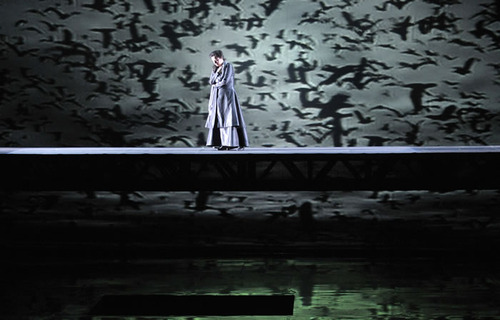 Israel Opera production of Pique Dame with Ira Bertman as Liz
Israel Opera production of Pique Dame with Ira Bertman as Liz
(Photo credit: Yossi Zwecker)
Another notable production was that of Tchaikovsky's melodramatic opera, The Ace of Spades (Pique Dame) based on a tale of Pushkin. The obsessive gambler, Herman, woos Liza only to gain access to her grandmother, the old countess, who succeeded at gambling in her youth by a winning formula. Herman is determined to learn the secret and pleads with the Countess to reveal it. She refuses his threats and dies of fright. Liza who had been engaged to Prince Yeletsky commits suicide as does Herman. This production came from the Theater Wielki National Opera, Warsaw, Poland. Boris Kudlicka's staging reached its full dramatic intensity in the scene with Liza's suicide which showed her on a bridge with menacing birds in the background. The lighting effects here were particularly effective.
In this performance, pride of place went to the veteran mezzo soprano Anja Silja who portrayed the countess with dignity, elegance and remarkable stage presence. She was most moving in her great aria when she reminiscences on her past life. This was without doubt the dramatic and vocal pinnacle of the performance. The other impressive voice was that of Yeletsky sung by baritone Vladimir Petrov. He was particularly effective in his dramatic aria, "I love you beyond measure," where he extols his love for Liza. Ken-Lynn Wilson and the Israel Symphony Orchestra Rishon Lezion were worthy partners in this endeavor.
To celebrate its 25th anniversary, the Israel Opera also mounted a performance of Verdi's dramatic early opera, Nabucco. The venue selected was the hallowed mountain fortress of Masada, the site of the final defeat of the Jews by the Romans almost 2000 years ago. Not a simple undertaking to mount a huge production which included 40 tons of equipment in the desert more than 150 km from Tel Aviv. To their credit, the management took care of all the formidable logistic details without a hitch. There were eight performances and 6500 people attended on each occasion. Some 4000 visitors flew in especially from abroad. In such a setting, with the magnificent backdrop of the mountain, the emphasis was on spectacle and there was plenty of that. The dramatic production was directed by Joseph Rochlitz with sets by Nitzan Refaeli. Camels and horses featured in the procession scenes. Sound amplification could prove a formidable impediment in the open desert but high marks goes to the sound designer Bryan Grant. The very effective lighting with spotlights, floodlights and pyrotechnics was by Avi Yona Bueno.
The orchestra was conducted by David Oren who gave an insightful reading of the score. Particularly impressive was Italian baritone, Alberto Gazale, in the title role. He succeeded in conveying Nabucco's early imperious arrogant character as well as his pathos and remorse at the opera's end. Veteran bass Paata Burchuladze was also effective as the Hebrew high priest Zaccaria. In June 2011, the Israel Opera have promised another grand spectacle, Verdi's Aida in the same venue.
In its first 25 years, the Israel Opera has raked up impressive accomplishments and with its high standards it certainly can hold its own with other major European and American houses. Remarkably quickly, it has ascended the ladder to become one of Israel's major cultural institutions.



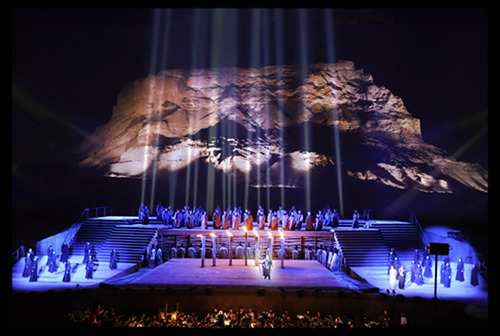 Israel Opera production of Nabucco at Masada
Israel Opera production of Nabucco at Masada